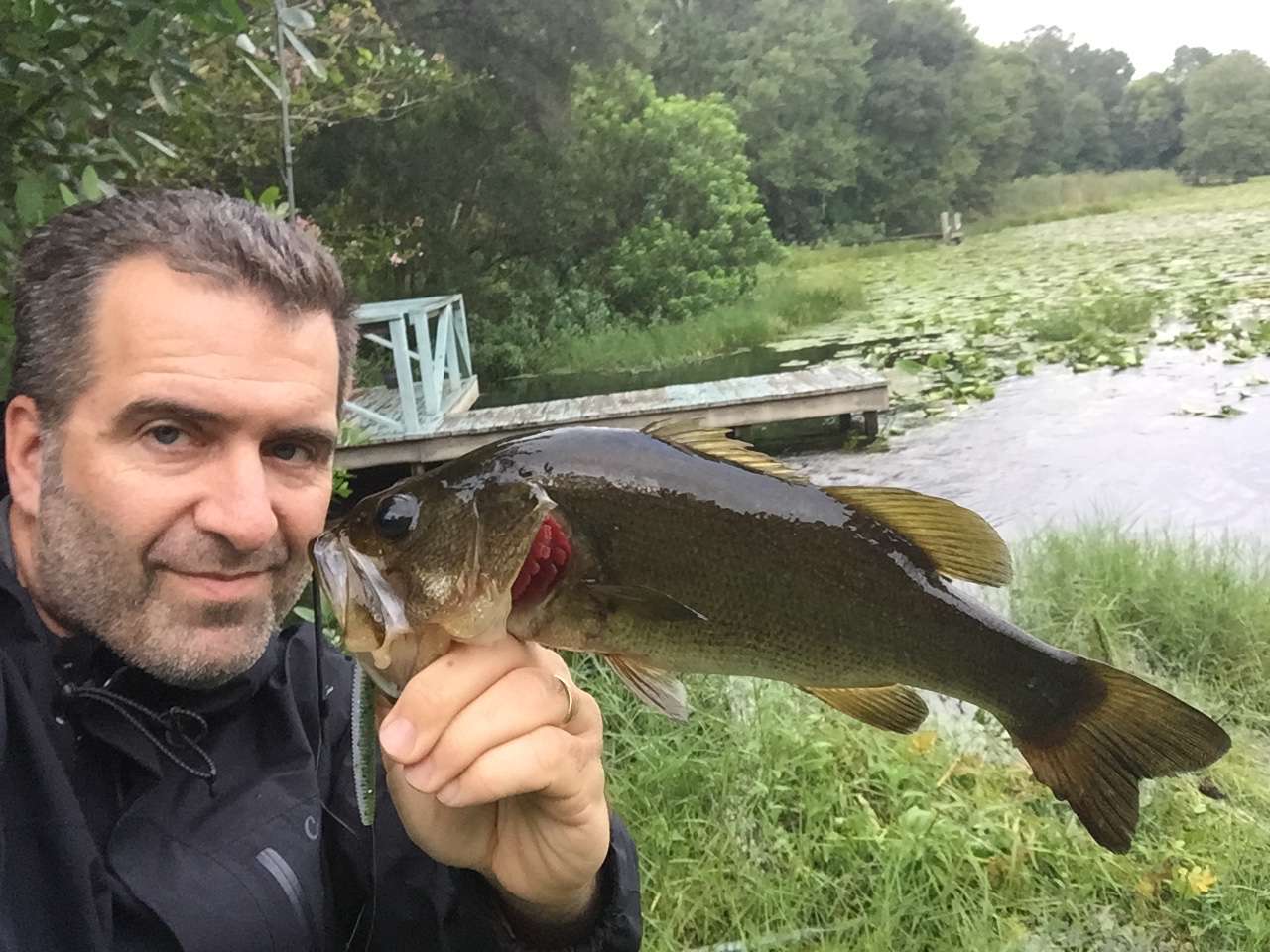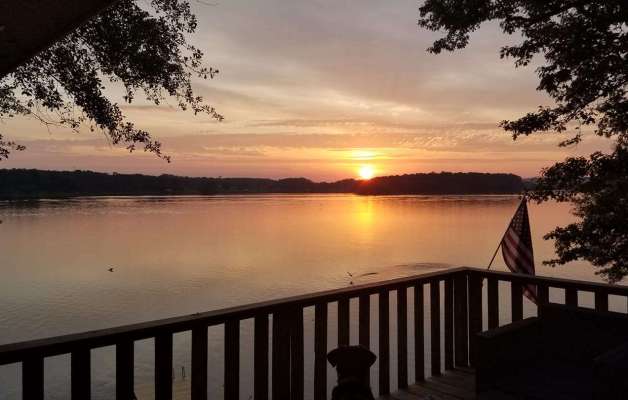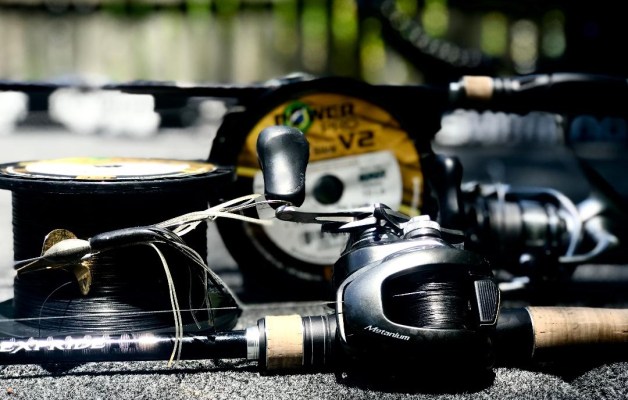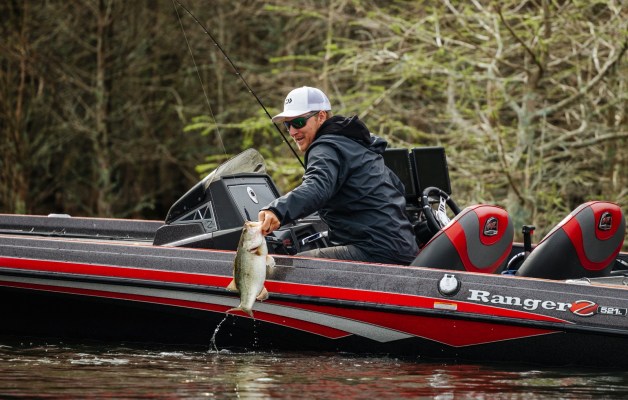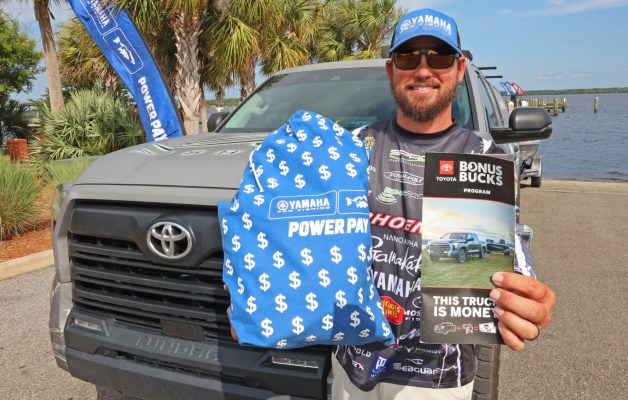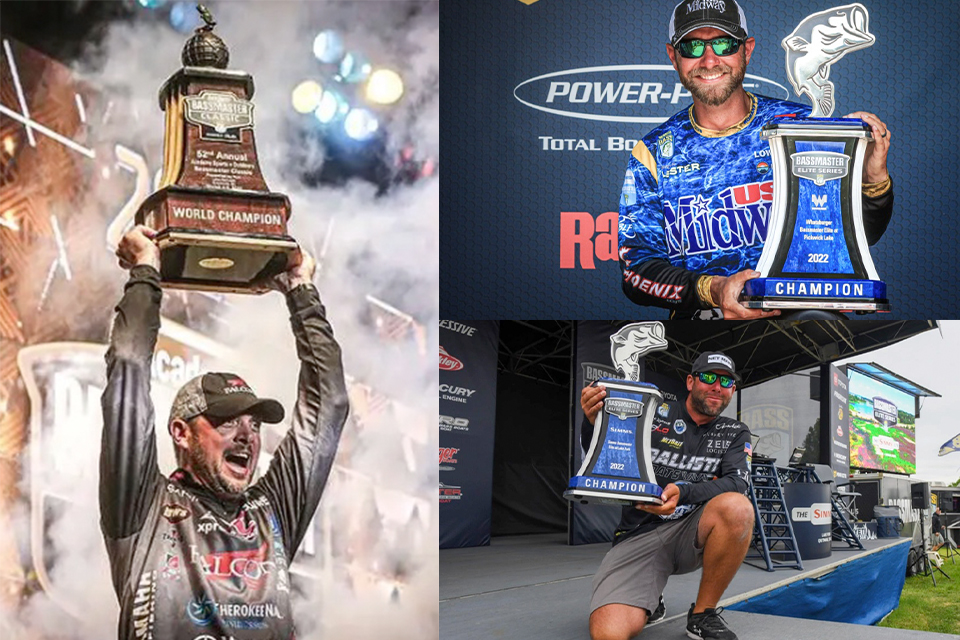
Camaraderie, competitive drive, career-defining moments — tournament competition serves personal and professional goals, and winning ices the cake. Notching that W takes a lot of effort and good fortune, so reaching the pinnacle typically tops an angler’s annual reflections.
Winning twice in one season, well, that’s something special.
This year, three Bassmaster Elite pros added two trophies to their mantles. Making their stories even more notable, each won at two different levels.
Climbing the mountain
When Jason Christie returned after two years away from the Elite Series in 2021, he made it known that he had some unfinished business. Winning the Sabine River Elite in his first season back was impressive, but Christie was still hunting the biggest prize of all — one that had narrowly eluded him multiple times.
March 6, 2022, saw Christie check off the most meaningful box of his career, as the seasoned pro from Parks Hill, Okla., won the Academy Sports + Outdoors Bassmaster Classic at Lake Hartwell.
A month later, Christie held his fifth blue trophy after winning the Guaranteed Rate Bassmaster Elite at Chickamauga Lake. Notching two major wins less than five weeks apart was nothing short of amazing, but as Christie explained, the timing made a necessary statement.
“The most rewarding thing was I won the Classic, and the next week, I finished nearly last (93rd) at Santee-Cooper,” he said. “I love it that, after that event, I turned it around and won.
“It’s like playing sports — you can’t live off what you’ve done in the past. You fish a tournament, and you learn from it. You take the good with you, and you leave the bad behind you. Besides the Classic, Chickamauga was one of my favorite wins.”
Brandon Lester: The veteran Elite from Fayetteville, Tenn., wasted no time in making his mark on the 2022 season by winning the first St. Croix Bassmaster Southern Open presented by Mossy Oak Fishing, on Feb. 5 at the Kissimmee Chain. Four months later, he held his first Elite Series trophy after winning at Pickwick Lake.
Lee Livesay: After earning his second Elite win at the Guaranteed Rate Bassmaster Elite at Lake Fork in 2021 (his first was Chickamauga, 2020), Livesay once again topped his Texas home lake with the 2022 Lake Fork title. Three weeks prior, Livesay won the St. Croix Bassmaster Central Open at Ross Barnett Reservoir.
Points of view
Reflecting on their accomplishments, this year’s double winners shared a few insightful thoughts.
Momentum: Christie does not duck the frustration of bombing the first Elite event after his Classic win, but getting the train back on track with a win at the very next one validates the mental momentum premise. Moreover, securing a 2023 Classic berth and boosting the bank account let him ride with the top down.
“Without a doubt, winning the Classic took a lot of pressure off,” Christie said. “With the exception of Santee-Cooper, the rest of the year it was much more relaxed because I didn’t have to worry about points.
“I call it ‘fishing fun.’ You don’t have a plan in the morning. It seems like the more pressure you put on yourself, the more you try to plan your day out. This year, I didn’t plan anything out. I just went fishing.”
Relieving the financial considerations early also contributed to Christie’s relaxed approach.
“I made a lot of money at the Classic, so I didn’t feel like I needed to win more events (for financial stability),” he said. “You can’t just wake up one morning and say, “I want to fish by my gut, or go fun fish today; you have to have all your ducks in a row.
“With sponsors, I always want to over deliver, and when you start off winning the Classic, you feel like ‘I’ve delivered for the year if I don’t catch another bass.’ So I didn’t feel any pressure from anybody or myself.”
Livesay agrees and adds this: “Obviously, the money from wining an Open helps, but it was more about the (2023) Classic. I had a terrible first quarter to the Elite season, so not having to worry about making the Classic definitely helped me fish a little freer.”
Wide ppen: For Lester, winning an Open the week before the first Elite on the St. Johns River was a massive shot of confidence. Locking up his Classic berth even before Christie put him in a most unique position.
“I remember thinking, ‘Man, I have an opportunity not a lot of people can say they have had — I get to fish a full Elite Series season without the pressure of (qualifying for) the Classic,’” Lester said. “That did a lot for me mentally, but I didn’t change my strategy, as far as how I practiced or how I fished an event.
“I stayed true to myself because I’ve been a really consistent angler, and I want to keep it that way. But knowing that I already had that Classic made, maybe in the back of my mind, I did take some chances that I wouldn’t normally have taken.”
Game plan: Everyone who’s ever fished the Classic knows the no points, go-for-it mentality required of those pursuing the life-changing title. That said, Christie admitted his Classic win proved more demanding.
“There are just so many more variables at the Classic,” Christie said. “There’s not a formula (for how to win); I think a lot of that comes with experience. But the last day of the Classic, you have media, you have boats on the water, you have fans. Even though you have a lot of that in Elite events, the Classic is that times 10.”
Noting that both of his tournament wins were about making the right adjustments at the right times — the Open was spawn related and weather impacted, while the Elite was more about fish mood and postspawn movement — Lester said the overall approach for fishing these two circuits is considerably different.
“An Open event is one day shorter than a four-day Elite, but there’s also (up to) 225 guys out there the first two days, so there’s a lot more pressure on the water,” he said. “Honestly, during the Opens, I try to find things that are against the grain — I try to think outside the box a little more.
“I just treat an Open as a tournament where I go all-in. I’ll try more off-the-wall stuff than I do most of the time on the Elite Series.”
For Livesay, an Open’s larger field size often means finding a key area and putting up the “No Trespassing” sign. Such was the case on Ross Barnett when he dialed in a specific spot in a specific area of a heavily trafficked community hole.
“On Day 1, I had (the event’s second-largest, 25-12) by, like, 9:15 and after that, I guarded it,” Livesay said.
A different vibe: One thing Lester and Livesay both find appealing is the Opens’ more relaxed pace and fraternal atmosphere. As Livesay put it, “Nobody knows anybody, but everybody knows everybody.”
Furthermore, it’s widely acknowledged that the Opens hold some of the industry’s toughest competition. To that point, Elites often enjoy the reminiscence and inspiration of returning to the place where dreams are born.
“More than anything, the reason I keep fishing Opens is the (enjoyable atmosphere),” Lester said. “I love the Elite Series, but worrying about the points and making the Classic is a lot of stress in a year.”
And then, there’s the sentimental stuff.
“I see that look in a lot of the young guys I’ve met fishing the Opens. They have that look in their eyes that says, ‘I don’t know what it’s going to take, but I’m going to do it,” Lester said. “It’s cool to look back, because I think I had that look in my eye.
“I didn’t know what it was going to take, but I was willing to put in the work and fish every day if I needed to do to make it happen.”
The fire: Livesay takes that thought a step further by pointing out how the Opens help him scratch the itch.
“Even though I’m already in the Elites and well qualified, I still want to qualify again, even though it won’t do me any good this year or next year,” he said. “It’s just the desire to continually do well.”

